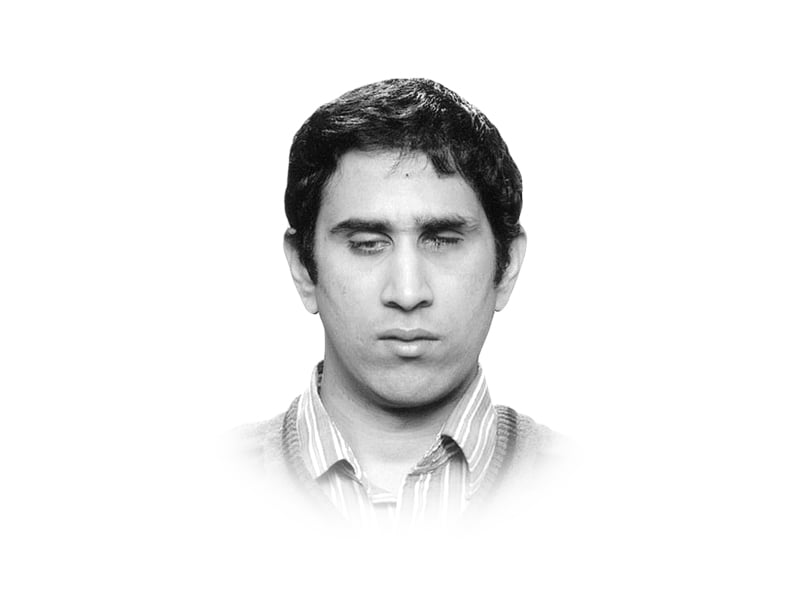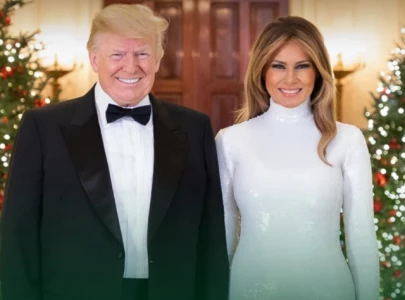
An elite compact is not necessarily a totally negative thing. Various elite factions agreeing on some rules of the game can reduce conflict and the resulting stability can have trickle-down benefits for the masses. If the deal includes a better resource-sharing formula, that, too, can bring some gains for the public. That said, an elite consensus is not a totally positive thing either. It does, at the end of the day, mean the elite coming together to protect their interests more than those of the masses. The ruling architecture on which our political class agrees is no exception.
Our politicians have a strong consensus in favour of the parliamentary system. This is not surprising because this suits the local elite that control constituency politics, whereas in a presidential system, local patronage networks can sometimes take the back seat. There is a clear fondness for the current federal structure with four very large provinces (with occasional calls for one to two new provinces) and an agreement on considerable autonomy for these units, thus giving the regional elites that dominate the political landscape in these provinces a decent share of the pie. However, decentralisation is to be largely limited to provincial autonomy for these large provinces, and inclusive structures like local governments are to be avoided as much as possible. The idea of small provinces, which would bring the government closer to the people, is to be frowned upon. Dynastic politics is to continue, with no need for political parties to practise internal democracy and organise themselves along democratic lines at the grassroots level. Concepts like good governance, rule of law and accountability can all take a hike. In short, a non-inclusive and extractive political system. Not exactly the traits of a system that deserves the kind of unqualified praise that we have been heaping on the Eighteenth Amendment and the broader compact of which it was a part. Nor does this compact exactly represent a consensus or reflect the ground realities of society, notwithstanding what its unquestioning admirers say. If it did, we would not be having the level of political instability we have. The reality is that a large section of the middle class strongly feels alienated from this system. Its endorsement of military interventions in the past, its attitude of non-involvement in politics, its support for an activist judiciary that was often at loggerheads with the previous government, and now, the PTI phenomenon with its dharna politics, should all be understood as different manifestations of this disconnect.
While this middle class segment does not have the numbers to elect an alternative force into power nationally, it certainly has the ability to play the ‘spoiler’ by taking to the streets and threatening the system. All this means that if we are to have political stability, there has to be a new bargain in which the interests and aspirations of the middle class for rule of law, accountability and a more inclusive political order are given some space. Where does the PTI’s politics of protests fit into this? Can it help us reach the renegotiated compact we need? The answer is both, yes and no.
Yes, because the PTI is the only major party that is talking about change, and the current protests have already resulted in a growing number of people talking about reform. Even many of those who have been singing Kumbaya about the Eighteenth Amendment and the overall deal surrounding it are now gradually beginning to smell reality.
At the same time, the manner of the PTI’s protests has led the party to paint itself into a corner by getting stuck on Nawaz Sharif’s resignation. What the party is not doing is to seriously organise itself at the grassroots level and engage the working class by taking up issues of workers, peasants and other economically under-privileged segments, instead of remaining confined to the middle class. It is still to hold a demonstration for the restoration of local governments, which could provide a strong rallying cry for attracting the grassroots constituency that feels disenfranchised by the current political system, even though this is the PTI’s natural recruiting ground. In short, the party should be focusing on doing grassroots work to attract more supporters and create a broader coalition for reform, instead of only focusing on a top-down notion of change in which the focus is on removing a few individuals at the top.
Politics is ultimately about various interest groups bargaining on the basis of their negotiating power rather than about taking puritan positions. The PTI equates bargaining and compromising with selling out instead of understanding how negotiation works and employing that to first generate maximum pressure on a strategically chosen pressure point, and then using that to extract the best possible bargain in which the rights and interests of ordinary citizens are given more weight. With the PTI having these weaknesses and the status quo parties avoiding reform as much as possible, it appears that the process of finding a new compact for a better and more inclusive political system is likely to be a longer and bumpier one.
Published in The Express Tribune, November 7th, 2014.
Like Opinion & Editorial on Facebook, follow @ETOpEd on Twitter to receive all updates on all our daily pieces.
COMMENTS (4)
Comments are moderated and generally will be posted if they are on-topic and not abusive.
For more information, please see our Comments FAQ



1719319701-0/BeFunky-collage-(10)1719319701-0-165x106.webp)







1735025557-0/Untitled-(96)1735025557-0-270x192.webp)







The problem here is that on one side we have status quo that died not want to given any space to any reform agenda.... Like it or not but since the Dharna. Petrol prices have come down, electricity price is not being raised, we we Nawaz in parliament much more than before and at least these parties are under pressure to do something.... PTI is doing its part now it us the turn of the middle class yo come forward and put more pressure on tiling elite ....
A post doctoral research fellow in physics is the right kind of person to comprehend the political climate of the world in general and of Pakistan in particular. An extraordinary intellect is reflected in the article which could earn him an elite place in politics if this is his goal. jThe 21st century leaders would lead better if they have the science backing their vision..
Rex Minor
People from many regions of Pakistan are generally very poor in negotiation at grass root levels, even within their communities. Instead they resort to violence and aggression resulting in perpetual conflicts, and locked positions. There are many reasons for this intrinsic behaviour such as centuries of invasions, wars, religious propaganda, and oppression, instead of trade and commerce. Education and negotiation probably are the two key elements that need focus on every level, and looks like IK and his PTI have no clue of how politics work.
I did not know they teach politics in physics departments! You briefly touched on a big picture. Focusing on one issue at a time may be more effective. You do have the capability to analyze unlike so called experts writing garbage in these columns.